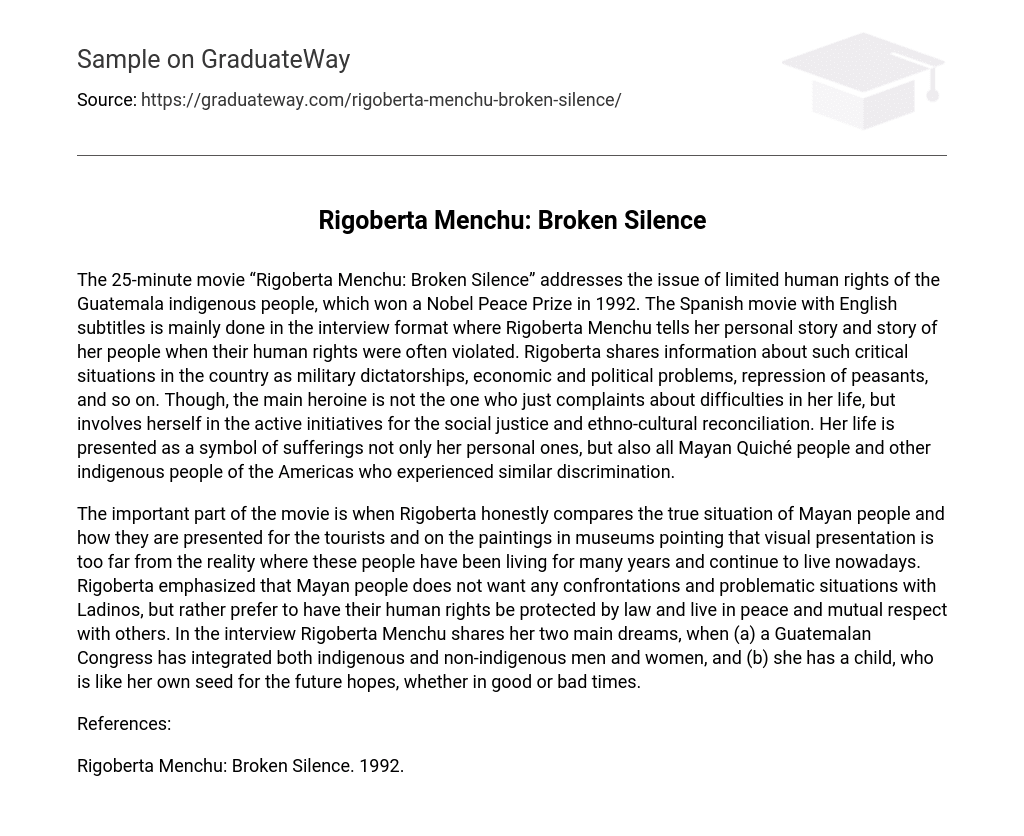The 25-minute movie “Rigoberta Menchu: Broken Silence” addresses the issue of limited human rights of the Guatemala indigenous people, which won a Nobel Peace Prize in 1992. The Spanish movie with English subtitles is mainly done in the interview format where Rigoberta Menchu tells her personal story and story of her people when their human rights were often violated. Rigoberta shares information about such critical situations in the country as military dictatorships, economic and political problems, repression of peasants, and so on. Though, the main heroine is not the one who just complaints about difficulties in her life, but involves herself in the active initiatives for the social justice and ethno-cultural reconciliation. Her life is presented as a symbol of sufferings not only her personal ones, but also all Mayan Quiché people and other indigenous people of the Americas who experienced similar discrimination.
The important part of the movie is when Rigoberta honestly compares the true situation of Mayan people and how they are presented for the tourists and on the paintings in museums pointing that visual presentation is too far from the reality where these people have been living for many years and continue to live nowadays. Rigoberta emphasized that Mayan people does not want any confrontations and problematic situations with Ladinos, but rather prefer to have their human rights be protected by law and live in peace and mutual respect with others. In the interview Rigoberta Menchu shares her two main dreams, when a Guatemalan Congress has integrated both indigenous and non-indigenous men and women, and she has a child, who is like her own seed for the future hopes, whether in good or bad times.





